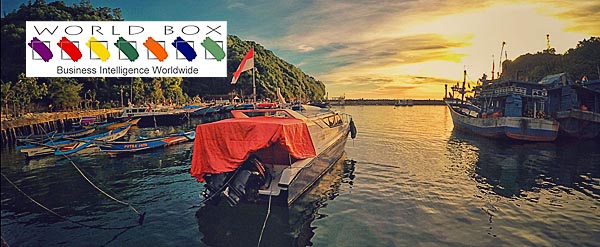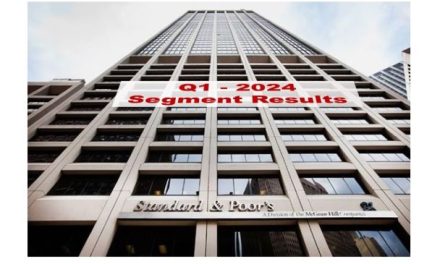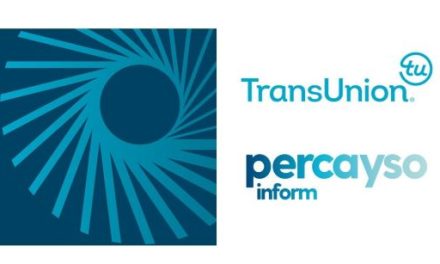Worldbox Country Risk Climate October 2023
INDONESIA
Summary
| Overall Risk Score 24 (Stable)
Political risk: Stable 8/10 Economic risk: Stable 8/10 Commercial risk: Stable 8/10 The risk assessment of a country is made up of 3 components, being Political, Economic and Commercial. Each component is scored out of 10 with 1 being the highest risk and 10 the lowest. |
ESG Risk: 6/10 (Stable)*
*Environmental, social and governance (ESG) issues are becoming increasingly important to companies, investors and consumers in Southeast Asia. That is why we are now preparing a separate ESG score and section with our quarterly country risk reports. We explain how each country rates, looking at the E, S and G individually, and outline recent developments. |
Political Risk – Stable at 8
Indonesia is facing heightened political uncertainty ahead of the next presidential election, which will be held in February 2024. The current president, Joko Widodo (Jokowi, as the president is popularly known), cannot stand in this election as the constitution does not allow for a third presidential term. Widodo first assumed office in 2014 and was reelected in 2019. Jokowi’s ruling coalition dominates parliament, controlling 82% of the 575 seats in the House of Representatives.
The main contenders for the 2024 presidential election are Defence Minister Prabowo Subianto, former Central Java Governor Ganjar Pranowo and former Jakarta Governor Anies Baswedan. Jokowi will, however, remain highly influential whoever wins the vote. Jokowi has three children and one of them is the mayor of Solo. His son-in-law runs Medan — one of Indonesia’s largest cities. His youngest son is also planning to enter politics.
An opinion poll held in August suggested the election will be a close contest between Prabowo and Pranowo. However, more than 30% of respondents said they could still change their choice. Any candidate that gains Jokowi’s backing could receive a critical boost. Jokowi remains highly popular with an approval rating in the 70 to 80% range.
Economic Risk – Stable at 8
A strong post-pandemic rebound has pushed Indonesia back into the upper-middle income band of countries, the World Bank reported in July 2023. Gross national income per capita climbed to US$4,580 in 2023, according to the bank from US$4,140 in 2022. The latest rankings should bolster Indonesia’s ambition to become a high-income country by 2045, the main aim of Jokowi’s economic platform.
The economy is much more dependent on domestic demand than other regional economies. Private consumption powers over half of Indonesia’s GDP. Exports account for just 20% of GDP, compared to 60% for Thailand and 176% for Singapore. Investment expenditure accounts for around 30 percent of total GDP in Indonesia – the second-largest contributor after consumer spending – with foreign direct investment a key driver of investment spending.
Overall, Indonesia retains many economic advantages, including an abundance of natural resources, a large and youthful working population, and a growing middle class. The banking system is also robust, with relatively low levels of non-performing loans and strong public finances. Indeed, it is tipped by many analysts to rise steadily through the economic rankings in the coming decades. In 2022, for example, the advisory firm Wellington Capital, forecast Indonesia could be the world fourth largest economy by 2030 on current trends.
The country also appears well placed to absorb external shocks, according to the IMF: it has ample FX reserves; the need for foreign financing is limited with a current account surplus of US$4.2 bn in 2022; the public debt ratio is relatively low; and it has improved capacity to deal with COVID-19 infections. The long-term local-currency government bond yield also maintains a comfortable margin over the global benchmark, which should also help reduce capital outflow pressures under risk scenarios.
Commercial Risk – Stable at 8
Corruption remains a challenge and acts as a major deterrent to business and investment. Indonesia is ranked 110th (out of 180 countries) in Transparency International’s Corruption Perception Index (CPI) for 2022 with a CPI score of 34 – sliding down from 38 and a ranking of 96th in 2021.
Fitch Solutions argues that the passage of a bill in 2019, which effectively weakened the powers of Indonesia’s anti-corruption agency, is one of the reason why corruption appears to be a growing problem. The agency adds that:
“If Widodo’s attempts at consolidating power through his family come to be perceived as a return to dynastic politics in Indonesia, then public perceptions of corruption in the country could become more widespread. That would increase investor uncertainty in the business environment.”
Indonesia is ranked 73rd out of 190 countries in the World Bank’s latest Ease of Doing Business guide, up from 91st out of 180 in 2016. Persistent trade and investment barriers (driven by protectionist sentiment), persistent and pervasive corruption, poor infrastructure, inconsistent interpretation and enforcement of laws, and labour rigidity are the greatest challenges facing businesses and the economy, according to the latest US Country Commercial Guide for Indonesia.
Indonesia’s economic freedom score (from the Heritage Foundation) is 63.5, and it ranks 60th in the 2023 Index. It is ranked 10th out of 39 countries in the Asia–Pacific region, and its overall score is above the world and regional averages. Indonesia has undertaken wide-ranging reforms to address various structural weaknesses in the economy and improve competitiveness, according to the Heritage Foundation. Recent reforms have put greater emphasis on improving regulatory efficiency, enhancing regional competitiveness, and creating a more vibrant private sector through decentralization.
October Bulletin
Political Risk – Stable at 8
Fitch Solutions believes that a victory for Pranowo would probably allow for better policy continuity in Indonesia. It adds that a further consolidation of President Widodo’s power would not necessarily be a negative development for the economy. It explains that Widodo has made progress in enacting several major economic reforms including improving the tax system and exercising fiscal restraint. That, says Fitch, has helped Indonesia’s fiscal position to improve substantially.
If no candidate wins an outright majority of the national vote on 14 February, Indonesians may have to vote again on 26 June 2024 to select their next president. The Fulcrum publication said in September that the power struggle is shifting towards the question of vice-presidential candidates. Fulcrum reported that:
“The National Awakening Party (PKB) is now playing a more significant role by moving to Anies Baswedan’s coalition. PKB, which has supported Defence Minister Prabowo Subianto’s candidacy since August 2022, abruptly left his coalition last week when former Jakarta governor Anies Baswedan’s camp offered PKB Chairman Muhaimin Iskandar (Cak Imin), a place as Anies’ running mate. The offer was hard to resist, as Cak Imin and PKB had sought in vain this position under Prabowo from the beginning.”
Economic Risk – Stable at 8
The government is forecasting growth of over 5.7% in 2023. It also wants to reduce the poverty rate to 6.5%-7.5% from 9.57% by September, with extreme poverty completely eradicated by next year. The economy grew by an annual pace of 5.2% in the second quarter, surpassing market expectations. Strong government spending and private consumption helped offset the impact of weakening global growth on exports. However, the figures suggest the economy is likely to undershoot the government’s 2023 target.
Bank Indonesia embarked on an aggressive series of rate hikes in August 2022, raising interest rates for six consecutive months up until February 2023 when it paused the monetary policy tightening. Comments made by BI Governor Perry Warjiyo suggested that no further hikes were on the cards from the 5.75% level reached in January. Indeed, BI kept rates on hold at 5.75% at its May meeting. We anticipate BI will keep rates at 5.75% until the end of the year and only consider cutting policy rates should global central banks opt to ease monetary policy.
The annual rate of core inflation, which strips out government-controlled prices and volatile food prices, eased in August 2023 to 2.18% from 2.43% in the previous month, supporting the view that the next move in interest rates will be downward. The central bank focuses on core inflation.
In September 2023, Indonesia’s parliament passed President Joko Widodo’s 3,325.1 trillion rupiah ($216.06 billion) budget for 2024, with a fiscal deficit of 2.29% of gross domestic product. The budget assumes economic growth of 5.2%, which is slightly higher than 2023’s outlook of 5.1% and a state revenue target of 2,802.3 trillion rupiah.
Commercial Risk – Stable at 8
In its 2022 Article IV review of the economy, the IMF reported that the financial system appears sound, and the credit outlook is improving. It said that a credit rebound in 2021 had been bolstered by accommodative monetary and macroprudential policies, as well as improved access to government guarantees for bank lending to SMEs and corporates. It added that while asset quality risks have generally declined with the economic recovery but are still elevated in sectors hard-hit by the pandemic. The IMF concluded that although crisis-related measures are still in place, intensive supervision will be required to ensure prudent lending.
In March 2023, Fitch said it expects the operating environment for Indonesian banks to be stable in the near future on resilient, albeit moderating, GDP growth in 2023 and 2024. This should support the industry’s loan demand and asset quality, added the agency.
Fitch said that the overall asset quality for Indonesian banks should remain stable “given relatively healthy corporate and household balance sheets and further recovery in sectors hardest-hit by the pandemic”. Liquidity in the banking sector remains adequate despite monetary tightening. Fitch anticipates this to support the state-owned banks’ profitability by reducing pressure on their funding costs.
Environmental, Social and Governance – ESG Risk: 6/10 (Stable)
The United Nations’ Sustainable Development Goals (SDGs) are recognized as a beneficial framework for responsible investment. The Sustainable Development Report from Cambridge University Press assesses the progress of all 193 UN Member States on the SDGs. It provides a useful means of ranking Southeast Asian countries on their ESG progress.
Indonesia is ranked 75 out of 166 in the 2023 report with a score of 70.2.
Environment: Issues facing Indonesia include deforestation, water pollution from industrial waste and sewage, and air pollution in urban areas. The expansion of agriculture, particularly clearing land for palm oil production, is the major cause of deforestation. However, the logging industry is also a significant contributor to deforestation, with illegal logging occurring in many protected areas. Mining activities, such as coal and gold mining, have also led to the destruction of large areas of forests and the pollution of waterways.
The problem of air pollution is worsening, with Jakarta routinely ranked top of the list of the world’s most polluted major cities. Forest fires, pollution from coal-fired plants, emissions from cars, open burning, and biomass burning for cooking and heating are among the main causes. In 2021, an Indonesian court ordered President Joko Widodo and other senior government officials to improve the hazardous air quality of the capital Jakarta after finding them guilty of environmental negligence in a civil lawsuit. However, to date little has been achieved.
Social: The law provides, with some restrictions, provides for the rights of workers to join independent unions, conduct legal strikes, and bargain collectively. The law prohibits antiunion discrimination. Most workers are not covered by the minimum wage laws. However, the authorities only enforce labour regulations, including minimum wage regulations, in the formal sector, which employs around 4 in 10 workers. Those in the informal sector have few protections.
Governance: Indonesia continues to bring its legal, regulatory, and accounting systems into compliance with international norms and agreements. However, the regulations and enforcement are not yet up to international standards for shareholder protection. Indonesian businesses are required to undertake responsible business conduct (RBC) activities under Law No. 40/2007 concerning Limited Liability Companies.
October Bulletin
Environmental, Social and Governance – ESG Risk: 6/10 (Stable)
In November 2022, the government launched the Environmental, Social, and Governance (ESG) Framework and Manual, for government support and facilities in infrastructure financing. It added that ESG implementation would be carried out gradually until 2025 with the piloting phase starting in 2022 for the housing and water sector. However, FDI Intelligence reported in February 2023, that the country’s “loose” labour and environmental standards have started to drive out sustainability-conscious investors.
Latest economic data

f – forecasts
* – WBI
** – Official figures
Source: InternationalMonetary Fund, except where stated
Useful Links
https://www.adb.org/countries/indonesia/main
https://www.transparency.org/en/cpi/2021
https://www.imf.org/en/Countries/IDN
https://www.thejakartapost.com/
https://www.abc.net.au/news/topic/indonesia
About Worldbox Business Intelligence
Worldbox Business Intelligence, headquartered in Switzerland, is a Global API data solution provider of business intelligence and used in data analytics.
With the Global API solution Worldbox Business Intelligence enables clients and partners also a frictionless real time onboarding, KYC and compliance verification while rapid global investigations are provided, if needed.
Worldbox Business Intelligence provides global data in a standardised structure to more than 200 Million companies worldwide. The global network of subsidiaries, branches and desks allows to precisely and efficiently collect data and target key territories for clients and partners.”
“Worldbox Business Intelligence – Bringing Swiss Precision To Data”
Copyright (C) 2023 Worldbox Business Intelligence. All rights reserved.
Our mailing address is:
Worldbox Business Intelligence
Breitackerstrasse 1
Zollikon
Zurich 8702
Switzerland





























